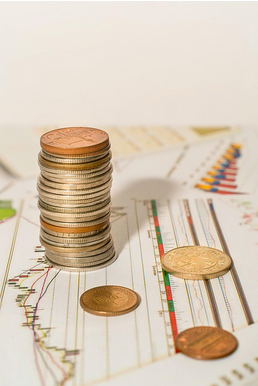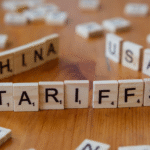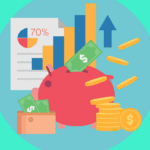In relation to the tariff the architecture of global economic interdependence is being placed under historic scrutiny. Indeed, international financial institutions are finally beginning to take seriously a storyline about trade deficits—a storyline that many politicians have belabored for decades. This storyline also compels a reclassification of the roles different countries perform in the global political economy.
Acknowledgment of Widespread Inequalities
The International Monetary Fund (IMF) has warned both developed and developing nations that they must be vigilant to not only internal macroeconomic imbalance but also external factors in order to absorb the macroeconomic imbalance as a medicine. IMFs Georgieva Wants Big Surplus, Deficit Imbalances Resolved Amid Trade Conflict Kristalina Georgieva speaks at a conference in Sofia, Bulgaria, on Dec. This may suggest that we expect some friction since countries are pretty large compared to trade flows. In a related vein, the World Trade Organization (WTO) has complained that more concentrated trade — buying and selling — has increasingly been a problem. The U.S. “has a point,” Okonjo-Iweala said, “when it says too many countries are dependent upon its market, or the supply of specific essential inputs is excessively concentrated in certain sectors or locations.” Equally worrying, the World Trade Organization, or WTO, said that world trade volume growth is likely to slow, which can have an overall drag on economic activity.
Evolution of Economic Roles
The US’s Future Role as the Leading Global Consumer: A Perspective from Outside But the idea that countries need to bear a relatively more significant share of the global economic burden has gained ground. This transition signifies that global trade relationships can now be reconfigured. Greater global burden-sharing has been referred to in the context of international economic policy. It is this thought that appears to trigger a re-evaluation of the status quo in financial institutions.
Impact of Possible Policy Changes
At the same time, trade policy changes can have an outsized impact on the global economic playing field. Knotting the international sector, Instability has taken root in the world marketplace with the quick introduction of a brand new set of tariffs, followed by a sudden suspension, only to have the cycle repeat itself as soon as again. That could translate into higher prices for consumers — and less business activity. The IMF is now pledging “massive markdowns” in its upcoming economic growth projections. This could create somewhat higher risks for smaller advanced economies and more dependence on trade in emerging markets.
On Economic Stability, Looking Ahead
Countries must strive to diversify their trade partnerships and avoid over-dependence on single markets or suppliers. Such diversification could help to insulate against potential shocks to the economy. By concentrating on both domestic economic equilibrium and balanced trade flow generation, the global economy can be part of a more solid foundation. All of us — at home, in our regions, across the global economy — must consider what economic reshaping over the medium term means in all countries involved.
Other Key insights
Adapting to changing economic conditions is an essential feature. Many businesses and governments are considering these options to avert disruption. Now more than ever, economic policies could use some clarity and coherence. One of the great realities of an evolving global economy is that financial sustainability and predictability will only grow in importance. Exactly how long this economic experiment will last is a question also for businesses and markets.
A country with an exchange deficit has a negative balance of foreign trade, when the import considerably dominates over amount of export. This has led to a situation where more foreign currency exits the borders than comes in. While a country borrows to make up the deficit, it may eat into its foreign exchange reserves. Continued balance of payments deficit, can create upward pressure on the foreign currency, leading to devaluing the national currency through the constant high demand for foreign currency. It could also play a role in higher inflation as imports become costlier. Exchange deficits normally cause governments to devalue the currency or limit imports. Detrimental investor confidence and drop in credit rating of the country led by a high deficit. Domains with exchange shortfalls will likewise have challenges in stamping out the money trade rate. Central banks can react with interest rate rises, weighing against the deficit. An exchange deficit is typically corrected by long-term policies to increase exports and decrease imports.






